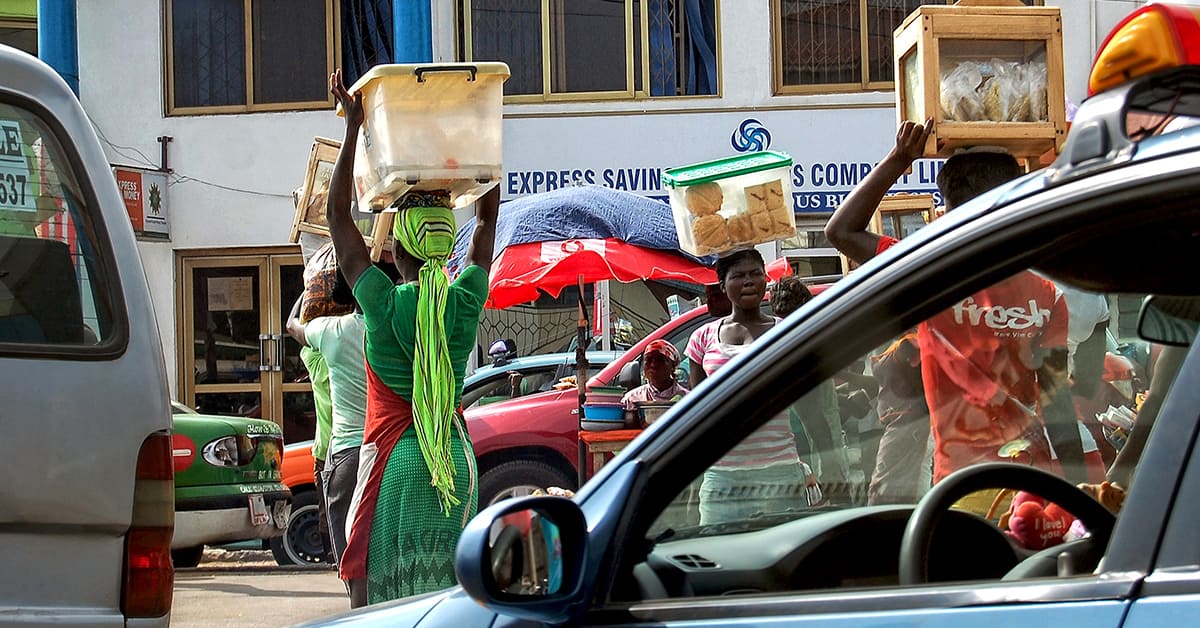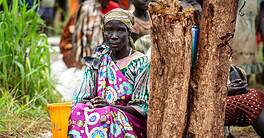State borrowing crowds out private lending in Ghana.

Ghana’s deteriorating public finances due to Covid-19 and delays in the government’s fiscal consolidation efforts have not gone unnoticed by the rating agencies. In June, Fitch Ratings lowered the outlook on Ghana’s long-term foreign-currency issuer default rating (IDR) to negative from stable and affirmed the IDR at B.
Moody’s gives an even lower long-term foreign-currency issuer rating (B3 Negative), citing fiscal risks as the key likely triggers for further downgrade. Were that to materialize, it would migrate Ghana into the highest default-risk category.
In announcing a July 19 executive board assessment of Ghana, IMF directors noted that the country’s ability to repay the fund is “adequate” and its risks are “still manageable.”
Still, the board saw problems growing, and emphasized a need to address rollover risk, as “Ghana continues to be classified at high risk of debt distress.” The IMF expects the current account deficit to worsen to 3.5% of GDP in 2022, from 2.7% in 2019, thus reinforcing the projected weakness of net international reserves, which are expected to cover barely two months of prospective imports.
With total revenue and grants of 12.8 billion Ghanaian cedi (approximately $2.1 billion) in the first quarter, government revenue fell 19% below budget, further contributing to the widening budget deficit as first-quarter total expenditure was almost double revenues at 24.3 billion cedi. This comes on the back of a record widening in the fiscal deficit in 2020 to 11.7% of GDP. Despite revenue of barely 10.3% of GDP, expenditure stood at about 24% of the GDP, with 85% of the latter going toward recurrent spending and debt service.
Ghana’s deteriorating fiscal position is further reflected in an elevated debt-to-GDP ratio of 76.6% as of May, one of the highest in sub-Saharan Africa, thus reinforcing concerns. More worrisome is that Ghana’s fiscal risks do not seem cyclical, but rather structural. This has raised concerns over not only this seemingly chronic challenge to macro sustainability, but also the government’s ability to correct the imbalance in the medium term without hurting standards of living, especially as Ghana has limited prospects for upscaling fiscal revenue soon.
To meet the rising need for financing, the Bank of Ghana (BoG) was forced to suspend the IMF memorandum of understanding in May 2020 that prohibited the central bank from financing the government’s budget through any means; even so, it pegged asset purchases/budget support at 10 billion cedi for the year. The 2020 fiscal deficit reached a record 15.2% of GDP, even as the government reiterated commitment to steadily pare it to 5% by 2024. Analysts are yet convinced of the political will and ability to achieve this target, as practical measures remain elusive.
Recent survey results indicate that both households and corporates are pessimistic on the consumption and investment
outlook. This follows new and higher taxes introduced in the 2021 budget. These include the Covid-19 Health Levy, which increases the National Health Insurance Levy by one percentage point; the Sanitation and Pollution Levy of 10 Ghanaian pesewas ($0.017) on the price per liter of gasoline or diesel fuel and the Energy Sector Recovery Levy of 20 pesewas per liter.
“Ghana’s fiscal measures aimed at increasing the revenue base are laudable, although such policy orientations are rarely effective when not complemented by expenditure cuts targeted at keeping government administration lean and efficient,” says Rita Babihuga-Nsanze, chief economist for Africa Finance Corporation. “Perhaps the most critical of fiscal risks pertains to the increasing share of revenues the government is directing toward debt service at the expense of other growth-enhancing and social sectors.”
According to Abiola Rasaq, head of corporate strategy and execution at Nigeria’s Central Securities Clearing System and former chief economist for Lagos-based United Bank for Africa, “Interest payments on government debt represented 36.3% of planned 2021 revenue and 47.7% of 2020 actual revenue. More critical is the abysmally low capital expenditure, which accounts for barely 8.5% of the planned expenditure for the year, highlighting the risk to the sustainability of Ghana’s debt management.”
This presents risks to future consumption and broader economic growth, as the government may need to continually raise taxes to finance the relatively large fiscal structure and rising debt service.
Despite the risk, Ghana has good access to relevant budget financing, including external debt. “The local debt capital market is liquid and deep enough to accommodate state borrowings; but this may continue to crowd out private sector credit, as banks’ holding of government securities represents 69.8% of total banking sector deposits and 47.1% of total banking sector assets,” Rasaq adds. The high rate of state borrowing will continue to undermine banks’ appetite for private sector lending, which is critical for job creation, inclusive growth and sustainable development, Rasaq explains.
Even at that, the structure of Ghanaian banks’ balance sheets may seem to reduce the depositors’ risk, as more than two-thirds of depositors’ funds are lent to the “super-risk-free” entity, the government of Ghana. The elevated debt overhang of the government raises concern, especially as continuous financing of the government by the central bank may portend inflationary risks.
The crowd-out effect government borrowing also undermines the transmission of Ghanaians’ savings into investments, a key factor that continues to constrain the business expansion requisite for job creation and sustainable growth.
On the external front, the government issued $3 billion in eurobonds in March 2021 and has budget approval to issue another $2 billion, which would be enough to cover its $3.3 billion in external debt principal and interest payments for 2021.
Catching A Second Wind
Through the proceeds of the government’s eurobond issuance and a $837.5 million trade surplus as of June, the Cedi appreciated 0.6% year to date. The trade balance is lower than the $1 billion recorded during the same period of 2020. The $2.4 billion addition to the existing $8.6 billion of gross international reserves, which would cover approximately five months of imports, also spurred the Cedi’s appreciation.
Kayode Tinuoye, regional director for Africa at United Capital in Nigeria, who oversees business across Africa except in Nigeria, notes the high debt level is a deliberate policy to strengthen infrastructure.
“Although Ghana’s debt-to-GDP ratio is projected to hit 81.5% at the end of the year, according to the IMF and Fitch Ratings, up from 78% in 2020, the government believes the debts are necessary and being used judiciously to improve public infrastructure—even if that comes at the expense of rising debt levels,” Tinuoye says. “With consistent reduction in policy rate, which has almost halved from 25.5% in December 2016 to 13.5% as of June 2021, the cost of borrowing and debt service burden should ease.”
The monetary authorities continue to seek measures to stimulate growth back to the pre-pandemic level, especially as moderated inflationary pressure and a stable cedi provide headroom to soften monetary policy. Headline inflation stood at 8.5% in April, back to pre-pandemic level and well in Ghanawithin the BoG’s target band of 8%, give or take 2%. The central bank’s Monetary Policy Committee reduced the benchmark interest rate by 100 basis points to 13.5% at its May meeting—the first interest rate cut in 14 months.
Although the interbank interest rate is easing, banks remain cautious on lending, given the fragile economic growth. With 9.8% of the industry’s loan book restructured in line with regulatory guidance to streamline relevant loans as a relief to businesses affected by Covid-19, the nonperforming loan ratio remains relatively stable at 15.5%. This portends notable risks to the sustainability of Ghanaian banks’ profitability, especially as the BoG acknowledges loan-delinquency risks in the quarters ahead.
The BoG prohibited banks from paying dividends, a move seen by some as a pseudo capital control that prevents foreignowned banks from repatriating. However, the central bank notes that the policy is aimed at strengthening the banks’ capital buffer against the probable risk of higher loan loss provisions. The IMF stresses that banks’ growing holdings of sovereign debt create risks and are crowding out private credit.
Nonetheless, it takes positive note of ongoing supervisory and regulatory reforms, as well as improvements in the framework for anti-money laundering measures and for combating the financing of terrorism. These allowed Ghana to exit the Financial Action Task Force’s “grey list” of states with strategic deficiencies in financial oversight.



